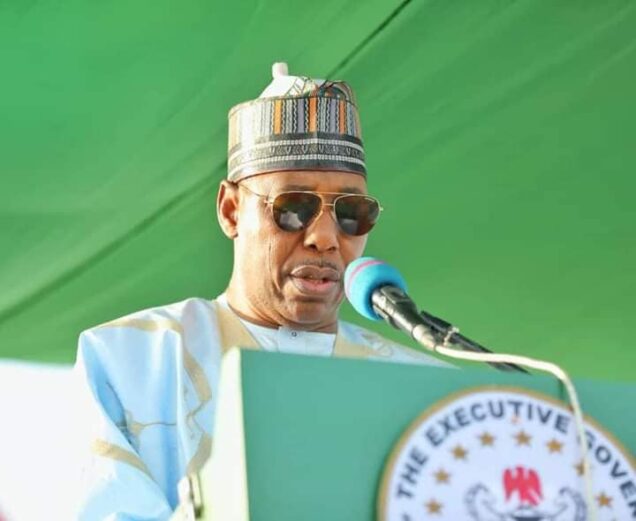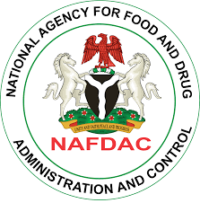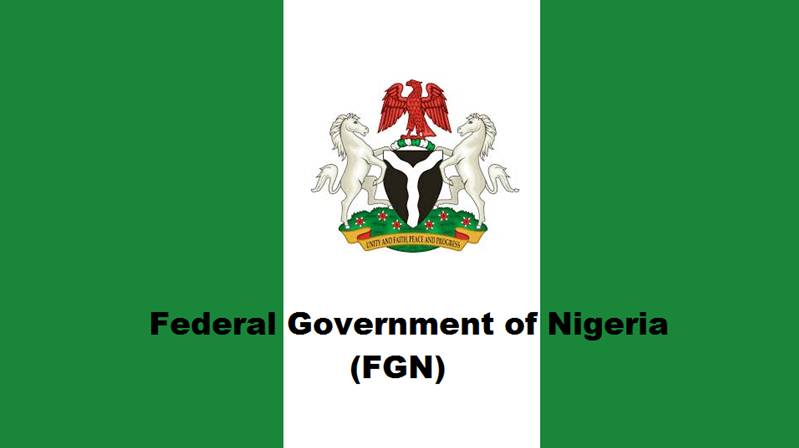Agriculture
Nigeria ranks 103 out of 121 countries in serious hunger level
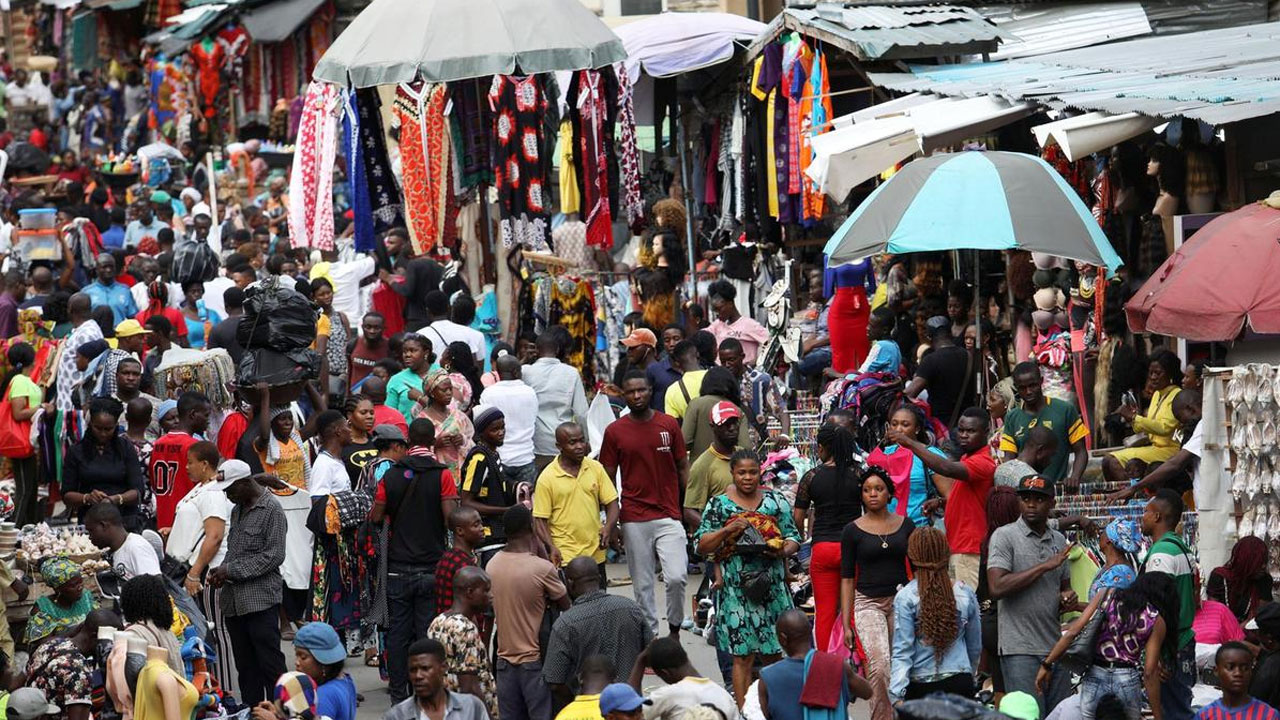
Every minute, more than six Nigerians enter the extreme poverty bracket as the number of poor persons in the country race towards the 95.1 million projected this year by the World Bank.
According to the World Bank, in its latest 2022 Poverty and Prosperity Report, Nigeria contributed three million people to global extreme poverty, while the country is “home to a large share of the global extreme poor.”
Also, at the weekend, Nigeria was ranked 103 out of 121 countries in the 2022 Global Hunger Index (GHI), a position that signifies the nation has a level of hunger that is serious. The Global Hunger Index was jointly published by the German-based Welthungerhilfe and Dublin-based Concern Worldwide on Saturday to mark the World Food Day.
The report, which ranks countries by ‘severity’, gave Nigeria a score of 27.3 – a hunger level falling under the ‘serious’ category.
The index has five levels of hunger under which each country falls – low, moderate, serious, alarming and extremely alarming. This is the second consecutive year in which Nigeria’s ranking on the scale remains the same. Nigeria, Africa’s most populous nation, ranked 103 out of 116 countries in 2021 and 98 among 107 countries in 2020.
At the beginning of this year, the number of poor Nigerians had increased to 91 million, with the World Bank estimating that an additional one million people were pushed into poverty in Nigeria from June to November 2021.
The latest figure of the poverty index, nearly half of the country’s estimated population of about 214 million, had jumped from 89 million, given by the National Bureau of Statistics (NBS) in May 2020. This means that 6.1 million more persons would have fallen beneath the poverty line in two years, making it the poverty capital of the world.
While India has more people living below the United Nations estimated poverty line of $2 due to its large population, by percentage, the country at barely six per cent, comes second behind Nigeria at 32 per cent.
It was stated that the poverty rate had been aided by the impact of the COVID-19 crisis and the growing population. Today, October 17, marks the 30th International Day for the Eradication of Poverty (IDEP) established by UN. UN Secretary-General, António Guterres, in his message to commemorate the day, stated yesterday: “As we mark the International Day for the Eradication of Poverty, we face a harsh truth: the world is moving backwards.
“COVID-19 plunged millions into poverty, setting back more than four years of hard-won progress. Inequalities are widening. National and household economies are battered by job losses, skyrocketing food and energy prices, and the gathering shadows of a global recession.
“At the same time, the climate crisis and raging conflicts are causing immense suffering, with the poorest people bearing the brunt. Developing countries are being squeezed dry, denied access to resources and debt relief to invest in recovery and growth. The Sustainable Development Goals (SDGs) are being pushed far out of reach.
“The International Day for the Eradication of Poverty is a wake-up call to the world. This year’s theme — ‘Dignity for all in practice’ — must be a rallying cry for urgent global action.
“Action to invest in people-centred solutions — from health and decent work, to gender equality, social protection, and transformed food and education systems. Action to transform a morally bankrupt global financial system and ensure access to financing and debt relief for all countries.
“Action to support developing countries as they transition from planet-killing fossil fuels to renewable energy and job-creating green economies. Action to end conflicts, heal geopolitical divisions and pursue peace; and action to achieve the SDGs. On this important day, let us renew our commitment to a better world for all. Let us consign poverty to the pages of history,” he said.
Although last year, President Muhammadu Buhari claimed that his administration had lifted 10.5 million Nigerians out of poverty between 2019 and 2021, a foremost human rights organisation, Centre for Citizens with Disabilities (CCD), yesterday, called on Nigerians to make poverty reduction a key campaign issue. Executive Director of CCD, David Anyaele, made the call in a statement to mark IDEP.
October 17, yearly, is recognised as International Day for the Eradication of Poverty and set aside to solidarise with people living in extreme poverty, in particular persons with disabilities, women and children.
“It is also a day for sober reflection and an opportunity to ask ourselves questions as a people on the extent we have contributed to the increase or reduction of poverty in our societies.”
Anyaele said the current set of Nigerian leaders have failed to reduce poverty in the land and have consciously or unconsciously contributed to the growing number of persons with disabilities due to their failure to tackle the increasing number of Nigerians going into extreme poverty.
According to him, this demoralising poverty situation in Nigeria is manmade and fuelled by bad governance and corruption in high places.
“Unfortunately, when people fall into poverty, their chance of acquiring disability becomes wider, as poverty has been linked as a major source of disability, even as disability pushes families into extreme poverty.
“As the 2023 general elections are around the corner, we call on Nigerians to make poverty reduction a key campaign issue. Candidates for the state Houses of Assembly, governorship, National Assembly and the Presidency must tell Nigerians how they intend to bend the poverty curve in Nigeria. Citizens should prepare to hold elected officials accountable for poverty reduction, as the poverty situation in Nigeria is man-made, majorly because of bad governance.
“The dignity of the human being is not only a fundamental right in itself, but constitutes the basis of all other fundamental rights. As an organisation of, and for persons with disabilities, we are worried that while other countries of the world are taking steps to reduce poverty within their societies, the increasing number of Nigerians that are experiencing extreme poverty is very alarming.
“According to a World Bank report titled ‘A Better Future for All Nigerians: 2022 Nigeria Poverty Assessment’, poverty reduction has stagnated since 2015, with more Nigerians falling below the poverty line over the years. The international organisation projected the number of poor Nigerians to hit 95.1 million in 2022.
“In other reports, Nigeria has been classified as the poverty capital of the world. This is because while the population of Nigeria is growing, the poverty situation is also competing with the population increase in the country.”
MEANWHILE, the United Nations Conference on Trade And Development (UNCTAD) has disclosed that additional 58 million Africans will fall into extreme poverty this year. This, according to UNCTAD report 2022, would add to the 55 million already pushed into extreme poverty by the COVID-19 pandemic.
It stated that the situation was as a result of Africa’s economic activity, which is expected to expand by a moderate 2.7 per cent in 2022 and 2.4 per cent in 2023, following a rebound of 5.1 per cent in 2021.
UNCTAD Secretary-General, Rebeca Grynspan, said: “The economic slowdown causes further setbacks in the realisation of the 2030 Agenda for Sustainable Development.”
According to the report, almost 60 per cent of Africa’s low-income countries are already in debt distress or at high risk of it, as debt levels, both private and public, stand at record levels. Besides, more than 60 per cent of African countries need external assistance for food, with hunger further spreading across the continent.
The 2022 Global Hunger Index (GHI) is a tool for comprehensively measuring and tracking hunger at global, regional, and national levels. Its scores are based on the values of four component indicators: undernourishment, child stunting, child wasting, and child mortality.
The 2022 report indicated that 12.7 per cent of Nigeria’s population is undernourished. It also showed that 6.5 per cent of under-five children in the country are wasted while 31.5 per cent of children under five are stunted. It also indicated that 11.4 per cent of children in Nigeria die before their fifth birthday.
No country was placed in the extremely alarming category this year. Nigeria’s position on the GHI is not news as previous reports had predicted a hunger crisis in Nigeria and its effect on the people, especially children.
A 2021 UNICEF report titled ‘Fed to Fail’ had revealed that many children under age two are lacking the food and nutrients they need to thrive and grow well, leading to irreversible developmental harm.
Another report by the UN Food and Agriculture Organisation (FAO) in March had predicted that about 19.4 million people will face food insecurity across Nigeria between June and August this year.
The report also showed that about 14.4 million people, including 385,000 Internally Displaced Persons (IDPs) in 21 states and Abuja, were already in a food crisis at the time of the report.
Nigeria’s hunger crisis has majorly been attributed to the insecurity ravaging many parts of the country. For more than a decade, Nigeria, and specifically the Northern region, has been subjected to relentless attacks by deadly groups such as Boko Haram and the Islamic State’s West Africa Province (ISWAP).
The National Human Rights Commission, on Sunday, raised concern over the rising food crisis in Nigeria, saying it had worsened access to healthy and nutritious food, especially among IDPs and vulnerable groups, leading to increase in widespread hunger and low quality of life. The Commission attributed the scenario to several factors, including “insecurity chasing farmers from their farms, coupled with many farmlands submerged in water due to flooding in some parts of the county.”
According to the Executive Secretary of the Commission, Tony Ojukwu (SAN), “the situation, which is partly associated with climate change has worsened access to healthy and nutritious food, leading to increase in widespread hunger and low quality of life and wellbeing of Nigerians, particularly the vulnerable group.”
Ojukwu lamented that it had become increasingly difficult for many citizens to make a decent living due to poor access to balanced diet, occasioned by escalating food prices resulting from insecurity and climate change.
Agriculture
Fintiri Unleashes N2bn Boost for Farmers as Adamawa Rolls Out 2025 Agricultural Support Programme
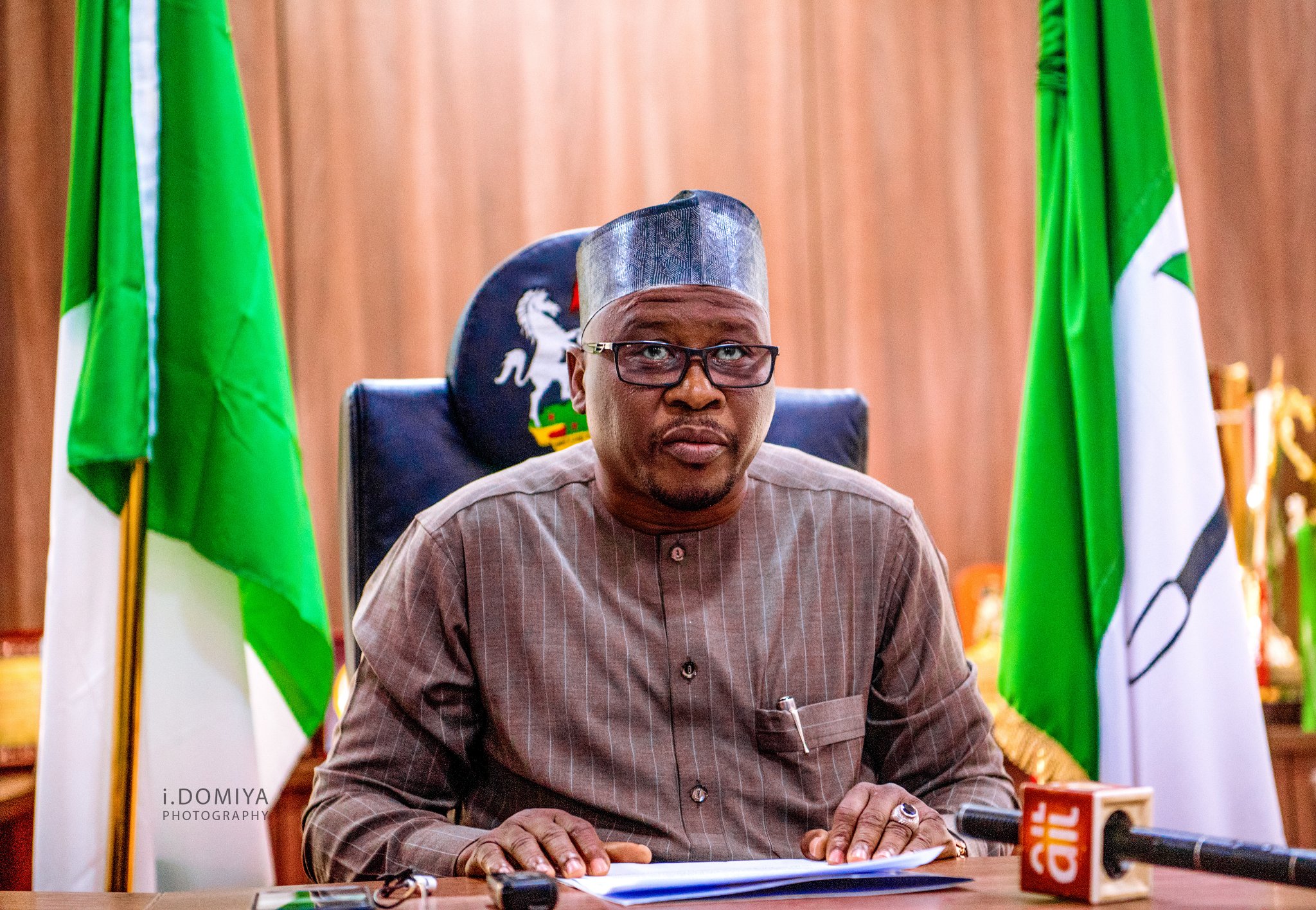
The Adamawa State Government has launched the 2025 Agricultural Support Programme aimed at empowering smallholder farmers and enhancing food security across the state.
Commissioner for Agriculture, Prof. David Jatau, disclosed this on Friday while briefing journalists in Yola. He revealed that Governor Ahmadu Umaru Fintiri had approved a substantial N2 billion for the initiative, which targets increased agricultural productivity in the upcoming farming season.
According to Jatau, the programme—which is already underway—will provide subsidised agricultural inputs such as fertilisers, improved seeds, and other essential materials to farmers in six local government areas.
“The programme has already commenced in six LGAs—Madagali, Michika, Hong, Maiha, Demsa, and Ganye,” he said. “By next year, during the rainy season, we will extend the programme to the remaining LGAs.”
He explained that 300 hectares of farmland would be cultivated in each of the participating local governments, with 300 farmers benefitting per council.
To ensure fairness and transparency, Jatau said a multi-stakeholder committee had been constituted to oversee the beneficiary selection process. The committee comprises representatives of traditional councils, local government authorities, security agencies, youth groups, and women organisations.
“We are also equipping extension workers with training to offer farmers guidance on modern agricultural techniques for improved yield,” he added.
The commissioner noted that the intervention would not only increase food production but also generate employment, improve rural incomes, and contribute to economic stability in farming communities.
Jatau also revealed that the state government is collaborating with non-governmental organisations and agricultural development bodies, with over 2,700 hectares of farmland pledged by development partners for cultivation.
He reaffirmed the Fintiri administration’s commitment to achieving food self-sufficiency and urged beneficiaries to make the most of the programme.
Agriculture
KWASU Microfinance Bank disburses loan to farmers
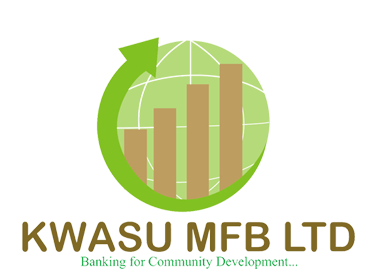
The Kwara State University (KWASU) Microfinance Bank has provided loan facilities to farmer groups in and around Malete, Moro Local Government Area.
The Vice-Chancellor and Chairman of the Board of Trustees, KWASU Microfinance Bank, Prof. Jimoh Shaykh-Luqman, announced this while presenting offer letters to the farmers’ associations at a formal event held on the university campus.
Addressing the farmers, the Vice-Chancellor, represented by the Deputy Vice-Chancellor (Administration), Prof. Moshood Jimba, said the agricultural loan scheme aimed to support farmers in boosting food production and enhancing food sustainability.
“The loan is meant to support your farm operations, especially in the upcoming planting season,” he said.
Prof. Shaykh-Luqman reaffirmed KWASU’s commitment to its mantra of being a “University for Community Development,” leveraging its expertise and resources to initiate programmes that drive local development.
The Managing Director and Chief Executive Officer of KWASU Microfinance Bank, Alhaji Hakeem Hassan, noted that the agricultural loan scheme was piloted last year with 15 farmers as beneficiaries.
He added that the pilot scheme yielded positive results for both the farmers and the bank, as all beneficiaries successfully repaid their loans.
Following this success, he said, the scheme had been expanded to include more farmers under various farmers’ associations.
The News Agency of Nigeria (NAN) reports that the associations benefiting from the agricultural loan scheme include Alanu Agbelere Farmers Group, Agbedola Ketere Group, and Itesiwaju Agbe Group Omoni.
Others are Agbeloba Farmers Association (Malete Market), Agbeyewa Elemere Farmers Group, Agbe Olofeere Group, and Agbeloga Malete Farmers Group.
Speaking on behalf of the farmers, the Chairman of Agbeloba Farmers Association (Malete Market), Alhaji Mohammed Abdulrazaq, expressed gratitude to the university and the bank for their trust.
He pledged, on behalf of the beneficiaries, to utilise the loans effectively and ensure prompt repayment.
Agriculture
Kano Govt. implements N2.3bn livestock empowerment programme

The Kano State Government has begun implementing the second phase of its livestock empowerment programme valued at N2.3bn under the Kano State Agro-Pastoral Development Project (KSADP).
The Commissioner for Agriculture and Natural Resources, Dr Mamood Danjuma, disclosed this while addressing newsmen on Thursday in Kano.
Danjuma said the initiative aims to support beneficiaries with livestock, feeds, drugs, and salt lick to enhance their economic well-being.
According to him, 911 beneficiaries are being supported with two rams each, feed for three months, drugs and salt lick, while 2,386 women are being supported with two goats and a buck goat in the poorest households in the state.
He explained that the total package under the empowerment programme showed that 1,342 bulls were procured by the government at the cost of N560m, 1,822 rams were procured at the cost of N175m and 7,158 goats bought at the cost of N451m.
“Under the cattle scheme, each cattle gains 100kg over a period of 120 days. The fattening period is for 120 days, making three cycles possible in a year.
“As for the small ruminants fattening scheme, with the same 120-day fattening period yielding an extra 15kg/animal.
“The project promotes goats’ reproduction through women who will take care of the animals and sell the young ones to improve their income and standard of living,” he said.
He said that the programme promotes economic empowerment, particularly among women, by providing them with livestock to care for and sell, ultimately improving their income and standard of living.
-

 Headlines4 years ago
Headlines4 years agoFacebook, Instagram Temporarily Allow Posts on Ukraine War Calling for Violence Against Invading Russians or Putin’s Death
-

 Headlines4 years ago
Headlines4 years agoNigeria, Other West African Countries Facing Worst Food Crisis in 10 Years, Aid Groups Say
-

 Foreign4 years ago
Foreign4 years agoNew York Consulate installs machines for 10-year passport
-

 News1 year ago
News1 year agoZero Trust Architecture in a Remote World: Securing the New Normal
-

 Entertainment3 years ago
Entertainment3 years agoPhyna emerges winner of Big Brother Naija Season 7
-

 Headlines1 year ago
Headlines1 year agoNigeria Customs modernisation project to check extortion of traders
-

 Entertainment2 years ago
Entertainment2 years agoMovie download platform, Netnaija, announces closure
-

 Economy2 years ago
Economy2 years agoWe generated N30.2 bn revenue in three months – Kano NCS Comptroller



